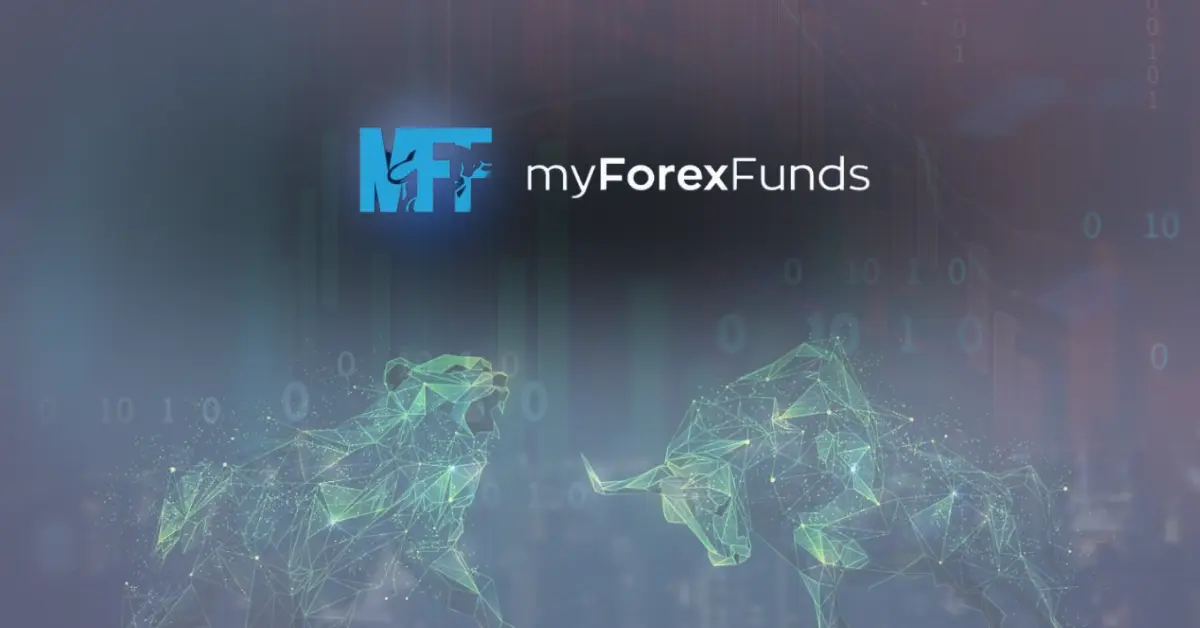The battle between proprietary firm My Forex Funds and US and Canadian regulatory bodies remains scandalous and has had significant effects on the prop firm industry.
A year ago, the Commodity Futures Trading Commission (CFTC) charged My Forex Funds (MFF) with fraud, and the Ontario Securities Commission (OSC) issued a temporary cease trade order on the company. MFF operations were effectively shut down.
In light of the MFF fiasco, the prop trading industry expects new, concrete regulations in the US.
On the other hand, MFF clones have taken advantage of the crackdown and continue to victimize traders trying to make a living.
Here’s where things stand for the prop firm and the US regulatory body, a timeline of events, and how it affected the prop firm industry.
CTFC’s official complaint against My Forex Funds
In August 2023, the CFTC filed an official complaint against My Forex Funds.
The regulatory body claimed that My Forex Funds “engaged and continue to engage in a large-scale fraud scheme involving leveraged, margined, or financed retail foreign exchange and retail commodity transactions in the violation of the Commodity Exchange Act and accompanying Commission Regulations.”
The complaint stated that MFF and its CEO Kazmi, offered retail traders the opportunity to become “professional traders” using MFF money and then share the profits.
The regulator claimed that traders on the platform were not trading live funds, instead, they were trading against MFF in an electronic trading environment controlled by the prop firm.
The CTFC claims that MFF “is a fraud” and that the payouts come from the fees paid by other customers, similar to a Ponzi scheme.
They further accused CEO Kazmi of using the fraud proceeds to “fund a luxury lifestyle.” So far, Kazmi was reported to have bought a $1.6 million Lamborghini Aventador, a $3.3 million Bugatti racecar, and a $3.5 million estate in Richmond Hill, Ontario.
The US regulatory body filed a total of five accounts of fraud.
How MFF Dominated Prop Trading
MFF is a prop trading firm that targets retail traders, evaluates their trading skills, and provides money for them to trade. The trader and the prop firm then split the profits, if any.
However, prop trading firms also generate income from “challenges fees.” Most prop trading firms create programs with a quota-based model where traders have to reach a certain goal before they qualify to receive funds to trade in the live market.
The MFF program fee ranged from $49 to $4900, and traders who paid a higher program fee had more access to capital. This means a trader can pay a registration fee of $49 and trade an account worth $5,0000, which MFF advertises as a “low-cost entry into professional trading.”
Additionally, traders are also required to maintain a minimum amount of equity in their account as a “drawdown limit.”
Forex Funds also offered different profit splits depending on their program plan targeting beginner to advanced traders, and with profit slips up to 85%.
Before the malpractice allegations, MFF generated over $310 million in fees and the firm reported over $1 billion in user deposits.
My Forex Funds was established in 2020 when prop trading began to gain popularity. They ran aggressive global social media campaigns with advertisements on YouTube, Facebook, and other platforms. They also regularly posted their total annual payouts, which range from $5 m to $10 m.
Related: How to Choose the Best Proprietary Trading Firms in South Africa
MFF often claims on its website that “your success is our business” to entice traders.
CEO Kazmi made a statement on the official MFF YouTube account explaining that “it’s traders who make us at the end of the day; it’s traders trading that makes us money.” This sales pitch attracted more than 135,000 traders to sign up.
My Forex Funds Investigation Timeline
August 2023 — The CTFC freezes assets of MFF and requires MFF to submit books and records.
Meanwhile, the Ontario Securities Commission (OSC) moves against the alleged scam of $310 million and issued a temporary cease trade order on MFF.
MFF responds that they “never defrauded its traders.”
September 04, 2023 — MFF terminates its service to the public
September 27, 2023 — MFF filed a motion against the CTFC and claimed that the regulatory body “recklessly mischaracterized” details on the CTFC’s complaints.
October 31, 2023 — MFF formally denies allegations of fraud and questions the jurisdiction of the CTFC.
November 14, 2023 — During a court hearing, it was revealed that the CTFC had knowingly included false statements on their declaration. They falsely alleged that MFF transferred $31.5 m to “unidentified accounts” that were really used for tax payments to the Canadian government.
The court decided partially in favor of MFF and CEO Kazmi and released assets valued at $100 million while the remaining $13 million was kept on hold.
However, the court dismissed the argument that prop firms operate in a “gray area” outside of trading regulations.
March 07, 2024 — MFF sought sanctions against CTFC for “serious abuse of the ex parte process and its authority as a government enforcement agency.”
A week earlier, CTFC Commissioner Caroline Pham called the allegations a “blight on the CFTC’s reputation and credibility” and criticized the Commission’s “ready, shoot, aim” approach to enforcement.
September 19, 2024 — A scheduled hearing for MFF’s request to penalize CTFC.
At present, there is no available update if the hearing happened or is delayed.
MFF operations remain shut down.
MFF Clones Victimize More People
While the official website and operations of My Forex Funds are currently closed down, scammers are taking full advantage.
Clones of My Forex Funds have appeared and are currently active on social media.
Beware of these clone firms:
| myforexfunds.io | website |
| instagram.com/myforexfunds.io |
The clone My Forex Funds IO has amassed a decent social media following with 35.7k followers on Instagram. Their most recent post was on July 29, 2024.
The clone operates with the same model and scheme as MFF, such as challenge programs. However, it claims to offer a 90% profit split, 5% bigger than what MFF offered.
The clone’s website copies MFF’s previous website. However, only the “Evaluation” button is clickable.
Clicking the button will redirect the user to a page that asks for contact information and payment details. But the user cannot proceed any further as the site states the page is under review.
Meanwhile, the official MFF Instagram account is open but remains inactive. Likewise, MFF’s website can still be viewed, but only the MFF logo appears, and there are no clickable links.
How the MFF Scandal Changed Prop Trading Regulations
Since the MFF fraud charges, the prop trading industry has been noticeably cautious.
Prop Trading Firms Play It Safe
One of the most obvious changes is the use of words on prop firms’ websites and how they market live trading.
Several popular prop trading firms have revised their website marketing and changed “live trading” to “virtual trading.” Additionally, many websites now include a Risk Disclosure at the bottom of their website.
Meanwhile, “manage capital” was revised to “manage stimulated capital.” Some platforms have highlighted that all accounts are “stimulated demo accounts with virtual capital” and that the provided trading platforms only “simulate real market conditions.”
Meanwhile, the “challenge” phase of other prop trading firms turned into an “audition” or “evaluation.”
These changes were made as a precaution in case the CTFC crackdown expands to other prop trading firms that market live trading.
Prop trading firms do not directly handle clients’ funds, instead, they provide liquidity and execute orders through brokerages. In theory, they are not subjected to the same strict regulations on brokers.
Industry Players Expect New Regulations
On the other hand, industry players have pointed out that this case would create a ripple effect on the regulations imposed on prop firms.
During last year’s iFX Expo International, prop firm CEOs said they expect no new regulations within the year because of how new the industry is.
“It’s going to take longer than 12 months because you have so many regulators that don’t understand our business because it’s quite new,” said FTMO CEO Otakar Suffner.
However, they still stated that regulations are necessary as it would create trust and protection for traders.
Related: List of Financial Regulatory Agencies Worldwide
Because of the fast-paced nature of the financial technology, there are new developments and innovations every day. Regulators will likely experience a lag between the law and what needs to be done to protect consumers and retail traders.
After the charges against MFF (and the company’s full compliance with the investigation), changes in the regulatory framework for prop trading firms and the fintech industry at large are unraveling as we speak, especially in the US.
Brokers, traders, prop firms, technology providers, and financial institutions are now prioritizing regulation and licensing. While one might say this should have been a given, a new era has emerged from the closure of My Forex Fund.

















